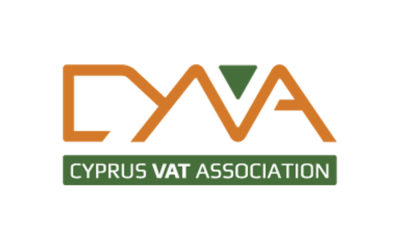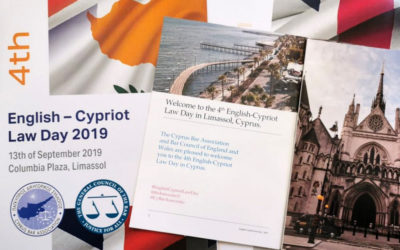Public access to Ultimate Beneficial Owner’s (UBO) Registers ruled as illegal

On the 22nd of November, the Court of Justice of the European Union (Grand Chamber), ruled that: ‘’Article 1(15) (c) of Directive (EU) 2018/843 of the European Parliament and of the Council of 30 May 2018 amending Directive (EU) 2015/849 on the prevention of the use of the financial system for the purposes of money laundering or terrorist financing, and amending Directives 2009/138/EC and 2013/36/EU, is invalid in so far as it amended point (c) of the first subparagraph of Article 30(5) of Directive (EU) 2015/849 of the European Parliament and of the Council of 20 May 2015 on the prevention of the use of the financial system for the purposes of money laundering or terrorist financing, amending Regulation (EU) No 648/2012 of the European Parliament and of the Council, and repealing Directive 2005/60/EC of the European Parliament and of the Council and Commission Directive 2006/70/EC, in such way that point (c) of the first subparagraph of Article 30(5), as thus amended, provides that Member States must ensure that information on the beneficial ownership of companies and of other legal entities incorporated within their territory is accessible in all cases to any member of the general public’’.
This ruling is a result of two requests made for preliminary rulings from the tribunal d’ arrondissement de Luxembourg (Luxembourg District Court) in joined cases C-37/20 Luxembourg Business Registers and C-601/20 Sovim.
In point (c) of the first subparagraph of Article 30 (5) of Directive (EU) 2015/849 of the European Parliament and of the Council of 20 May 2015, it was stated that ‘’any person or organisation that can demonstrate a legitimate interest’’ could have access to the information on the beneficial ownership, which included at least the name, the month and year of birth, the nationality and the country of residence of the beneficial owner as well as the nature and extent of the beneficial interest held, in an effort to prevent the use of the Union’s financial system for the purposes of money laundering or terrorist financing.
Article (1) (15) of the Directive (EU) 2018/843 of the European Parliament and of the Council of 30 May 2018 amended the above mentioned point (c), replacing it with ‘’any member of the general public’’, indicating that everyone, even though they might not have a ‘’legitimate interest’’, could have access to the said information. With the same Directive a new paragraph (5a) was inserted, which stated that ‘’Member States may choose to make the information held in their national registers referred to in paragraph 3 available on the condition of online registration and the payment of a fee,…’’
The referring Court, amongst others, questioned whether the above mentioned provision, in so far as it requires Member States to make information on beneficial owners accessible to the general public in all cases, with no requirement for a legitimate interest to be shown, is conflicting with the right to respect for private and family life, home and communications as well as the right to protect the personal data guaranteed in Articles 7 and 8, respectively, of the Charter of Fundamental Rights of the European Union.
The Court of Justice of the European Union ascertained that since the data referred to in Article 30 (5) includes information on identified individuals, namely the beneficial owners of corporate and other legal entities incorporated within the Member States’ territory, the access of any member of the general public to those data affects the fundamental right to respect for private life, guaranteed in Article 7 of the Charter, it being of no relevance in that respect that the data concerned may relate to activities of a professional nature.
In addition, making personal data available to third parties constitutes an interference with the fundamental rights enshrined in Articles 7 and 8 of the Charter, whatever the subsequent use of the information communicated.
In so far as the information made available to the general public relates to the identity of the beneficial owner as well as to the nature and extent of the beneficial interest held in corporate or other legal entities, that information is capable of enabling a profile to be drawn up concerning certain personal identifying data more or less extensive in nature depending on the configuration of national law, the state of the person’s wealth and the economic sectors, countries and specific undertakings in which he or she has invested.
The measures which result in interference with the rights guaranteed in Articles 7 and 8 of the Charter should be proportionate in relation to the objective pursued. The question whether a limitation on the rights guaranteed in Articles 7 and 8 of the Charter may be justified must be assessed by measuring the seriousness of the interference which such a limitation entails and by verifying that the importance of the objective of general interest pursued by that limitation is proportionate to that seriousness.
This particular judgement of the Court of Justice of the European Union is of great importance, as it re-establishes the impact of the most fundamental human rights, which are enshrined in Articles 7 and 8 of the Charter respectively and it clarifies that these rights must be protected regardless of other equally as important rights, that can be protected using other means.
In light of this judgement, several EU member states have started temporarily suspending public access to their beneficial owner registers, including the Grand Duchy of Luxembourg, the Netherlands and the Belgian Federal Public Service-Finance, with many others expected to follow suit.
With effect as of 23 November 2022, the Cyprus Companies Registrar has suspended public access on the beneficial owner register.
The obligation of companies and other affected entities to submit and update the register, with relevant details of the beneficial owners, remains unaffected.
It remains to be seen what measures other EU member states are going to take moving forward in accordance to the judgment of the Court of Justice of the European Union and how this particular ruling will affect the status quo in the European Union, in relation to the primary aim of the aforementioned Directives which is to prevent using the financial system for the purposes of money laundering or terrorist financing.
The materials found on this website are provided for the purpose of general information only. They do NOT constitute advice and they are subject to the Terms & Conditions.






